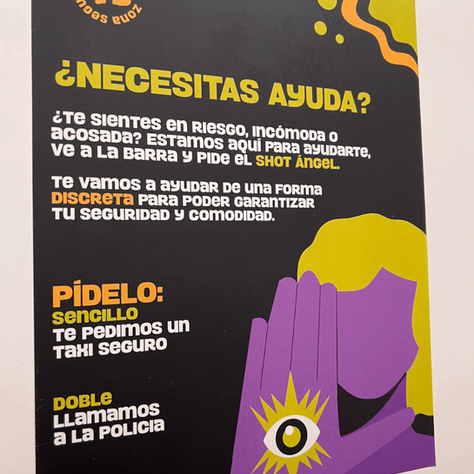Digital audio for your Business?: Yes! Podcasts are the new trend that will boost your SEO strategy
- Camilo Ramirez

- Jun 3, 2024
- 4 min read
Updated: Jun 17, 2024
We explain how a podcast can be an excellent resource to improve the positioning of your website in search engines and boost the SEO strategy of your online business.
Podcasts are a format that has gained relevance in recent years, and increasingly, brands are appropriating digital audio to develop their content and marketing strategies because they have found in it an attractive way to communicate and connect with their audiences. We have often heard the famous phrase "content is king," and when it comes to SEO, this statement makes sense. It is quality content that search engines value most for the organic positioning of a website, and it turns out that the podcast is another web content format that, when used strategically, can be extremely valuable for achieving the SEO objectives of your website. In this article, Blas Giffuni and Camilo Ramírez tell us why!
What is a Podcast?
Podcasts are episodes of content recorded in audio and transmitted online through different platforms. Some of their characteristics are:
Digital audio that combines voice, music, and sound effects. They are MP3 or WAV files. Podcast episodes are usually hosted on platforms from where they can be played. They allow for a variety of communication formats such as tutorials, guides, interviews, informational bites, chronicles, among others. They are characterized by having a defined periodicity and continuity over time.
What Podcast Publishing Platforms Exist?
There are multiple platforms, and you can host your podcast on one or several of them.
Some of them are:
Google Podcasts
Apple Podcasts
Anchor Spotify
Soundcloud Resonate
Can a Podcast Contribute to My Business's SEO Strategy?
Yes! However, the podcast alone does not work; behind it, there must be a clear content strategy to support it. Therefore, we must create a digital ecosystem around the podcast that allows search engines to understand what information we provide in it, what topics are addressed in it, and how they can classify it to include it in the results of users' searches. Thus, the episodes of your podcast, whether hosted on a platform or published on your website, blog, or landing page, must be accompanied by:
Titles
Subtitles
Descriptive texts that account for the main theme addressed in each episode. Link to your website or landing page.
Keywords and your brand name. *Note: Depending on the platform, you may or may not be able to put links within the descriptive paragraphs. We recommend that you still do it because even if the link is not functional, Google with its technology will recognize it as one and will identify that a website is being cited, which will benefit the SEO of your website.
So, it is important to contextualize the podcast and its episodes with texts in the form of structured data that adds extra information to help search engines find, interpret, organize, and display that content in the best possible way. This is how a podcast can contribute to your business's SEO strategy. It is not just about saying, "I'm going to record a podcast, publish it, and that's it, done!" You must think carefully about what title you will give it and write a description that gives a good account of what each episode is about.
Additionally, once the podcast is published, you must also consider the dissemination and promotion plan through the different communication channels of your brand, for example, social networks. To make it known. In summary, if a podcast is not tied to a content strategy, it really becomes an excuse to be in front of someone but is not necessarily something that will help you move sales, create better branding, or achieve your business goals.
What Happens in the Case of YouTube with Videos That Appear in Search Results with Thematic Separations?
Recently, when performing certain searches, videos from YouTube with thematic separations have been appearing within the results, informing the user of the exact second or minute when a specific topic is addressed or discussed. This is related to the subtitle files added to the video. It does not mean that Google has started reviewing each video's audio one by one. It means that, through structured data, whoever publishes the video and owns the channel can tell Google at what second or minute a specific topic is being addressed. This is how, within the transcription of the videos, subtitles can be created to which "flags" or "flags" are added indicating at what moments in the video a main topic is being developed. This has greatly favored the indexing and classification of audiovisual content. Make sure to do this if you have your podcast hosted on YouTube.
Conclusion:
Most digital properties or assets that can currently be owned generate a footprint that positively or negatively affects the positioning that a brand has on the Internet. One of those digital assets is podcasts, whether because they live on exclusive audio platforms or because they are included on YouTube, all generate an influence that is important to understand so that you can use it in favor of your SEO strategy. However, both the podcast and the video will only prove to be effective formats if there is a strategy and an investment in terms of time, people, and product quality behind them. Because you have to dedicate yourself to optimizing each of the videos or episodes to generate the expected results. That is, turning prospects into customers.
We invite you to continue reading our blog to learn more about search engine positioning.






















